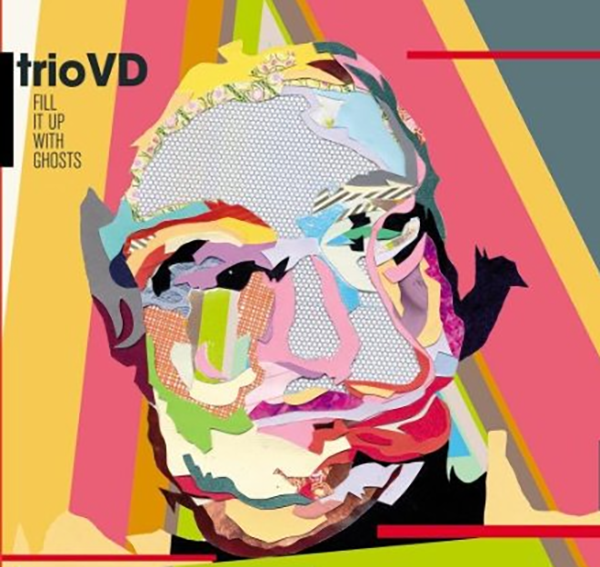
by Tim Owen
April 14, 2010
/ ALBUM
triovd are a well-knit unit who have already created a distinctively multifaceted and hard-wired music that, particularly in live performance, carries a real charge.
I really should have reviewed trioVD’s album before now, it was Mojo magazine’s choice for ?Best Jazz Album 2009’ after all, but somehow I never got around to it until prompted by their terrific live show (see my review, also on this site). Of course, ?Ghosts’ wasn’t the best jazz album of last year, though no doubt the guitar, bass, drums set-up and the trio’s youthful aggression should have ready appeal beyond Mojo’s readership. The album doesn’t quite capture the trio’s vitality though. In smoothing over some of the abrasiveness of their live act, the studio has had a somewhat deadening effect. The album is still terrific fun though, and it’s a pretty decent stab at bridging the stylistic chasm between even the most contemporary jazz groups and the most post- of post-rock outfits, between, say, Polar Bear and Battles. In this respect ?Ghosts’ is much more successful than was last years offering from another project featuring guitarist Chris Sharkey, Acoustic Ladyland’s ?Living with a Tiger’.
The Battles comparison hadn’t struck me before, but listening to certain passages in tracks like “To Whom?” and “Cowdun” it seems rather obvious, and it’s a positive observation because it encourages me to look behind the more obvious comparison with John Zorn, of whom the opening track, “Returns”, with it’s stop/start momentum and peckin’ sax, nevertheless seems almost a pastiche.
“Kesh” is more successful. For me it’s the highlight of the trio’s live set, and here it comes scrabbling out of the traps, not so very different to the previous track but tighter and more rhythmically tumultuous. It incorporates a quieter interlude and has a more measured variation on the general theme before the close, which shows that they can sustain a mood.
The first four and a half minutes of “Sixes and Sevens” reverts to the trio’s usual layered, stop-start, needling aggression, but the next two and a half are a perplexing near silence punctuated by a strangulated demi-vocal. A brief burst of the theme only heralds yet more of this static ambience and the track remains almost inaudible from then on.
“To Whom?”, next up, finds a brief moment for an interlude of light interplay between sax and percussion. And the album plays out track-by-track in more or less similar fashion, of variations on a theme with the odd contrasting interlude. The closing “Cowdun” distinguishess itself with a wordless vocal/sax-squark exchange, then some inter-band roleplay cuts into a three-way instrumental tussle.
trioVD should find favour with the majority alt. rock-oriented audience for whom a superficially comparable jazz trio such as Marc Ducret’s might seem too cerebral, and they deserve to. There’s a freshness to their sound and a lack of pretension that’s very appealing, and yet?I think that unless they develop that sound their appeal could soon wear thin; youthful vigour can only take you so far. Even over one album they can seem a touch too repetitive. If the passages of textural interplay that they splice into their trademark staccato pecking were transitioned any more abruptly they would evoke too directly John Zorn’s file-card mash-ups, but it’s the edgy abrasiveness of those contrasts that galvanise the music. Moving on will be a challenge and one that I hope the trio will want to meet because they are a well-knit unit who have already created a distinctively multifaceted and hard-wired music that, particularly in live performance, carries a real charge.
blog comments powered by Disqus